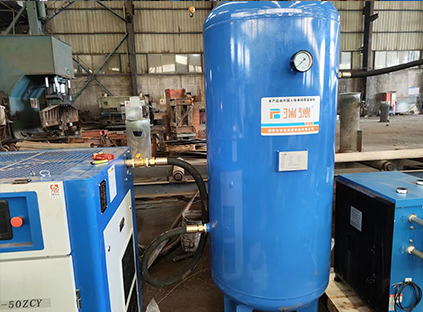The thermal performance of the air compressor refers to the exhaust pressure, exhaust temperature, power and efficiency. These thermal characteristics will directly affect the operating effect of the air compressor.

Exhaust gas temperature
1.Displacement volume The exhaust volume of an air compressor usually refers to the gas volume value when the gas discharged from the last stage per unit time is converted to the pressure and temperature of the first stage inlet state. It is also called volumetric flow rate. The unit is generally cubic meters. /every minute.
The air supply volume is the dry gas volume after converting the exhaust volume to the standard state and removing the moisture.
2.The exhaust temperature of the air compressor refers to the temperature discharged from each stage. For permanent magnet variable frequency air compressors, it is usually measured at the exhaust pipes or valve chambers of each stage. It is affected by factors such as lubricating oil, medium stability, and safety.
3.Power and efficiency: Part of the work consumed by an air compressor is directly used to compress gas, and the other part is used to overcome mechanical friction. The former is called indicated work, and the latter is called friction work.
The work required by the spindle is the sum of the two, which is called shaft work. The work consumed per unit time is called power. The efficiency of an air compressor generally refers to the ratio of the indicated power consumed by the air compressor to the shaft power, also known as mechanical efficiency.
4.Discharge pressure The discharge pressure of an air compressor usually refers to the gas pressure finally discharged from the compressor. The discharge pressure should be measured at the exhaust pipe of the final stage of the compressor.